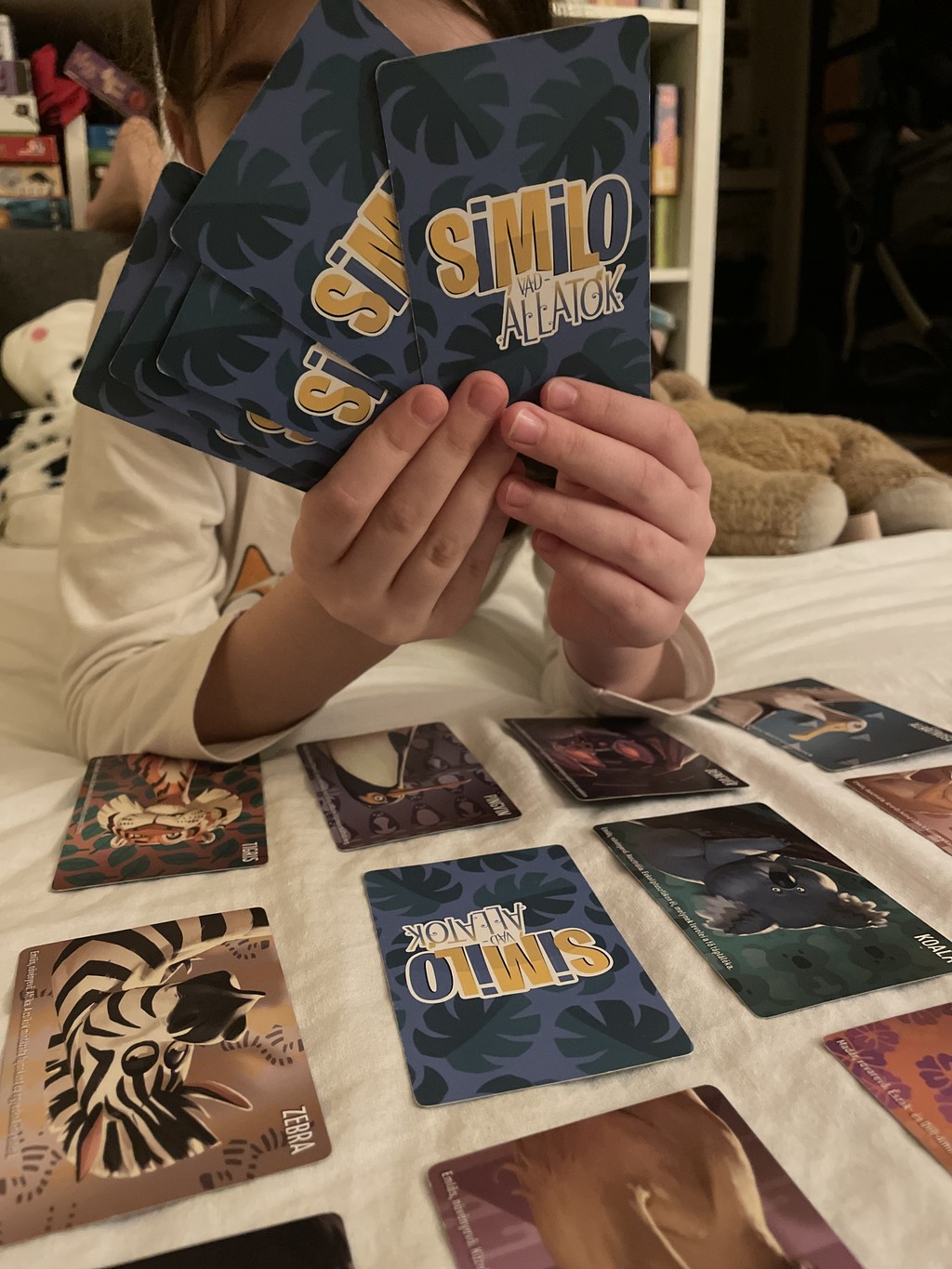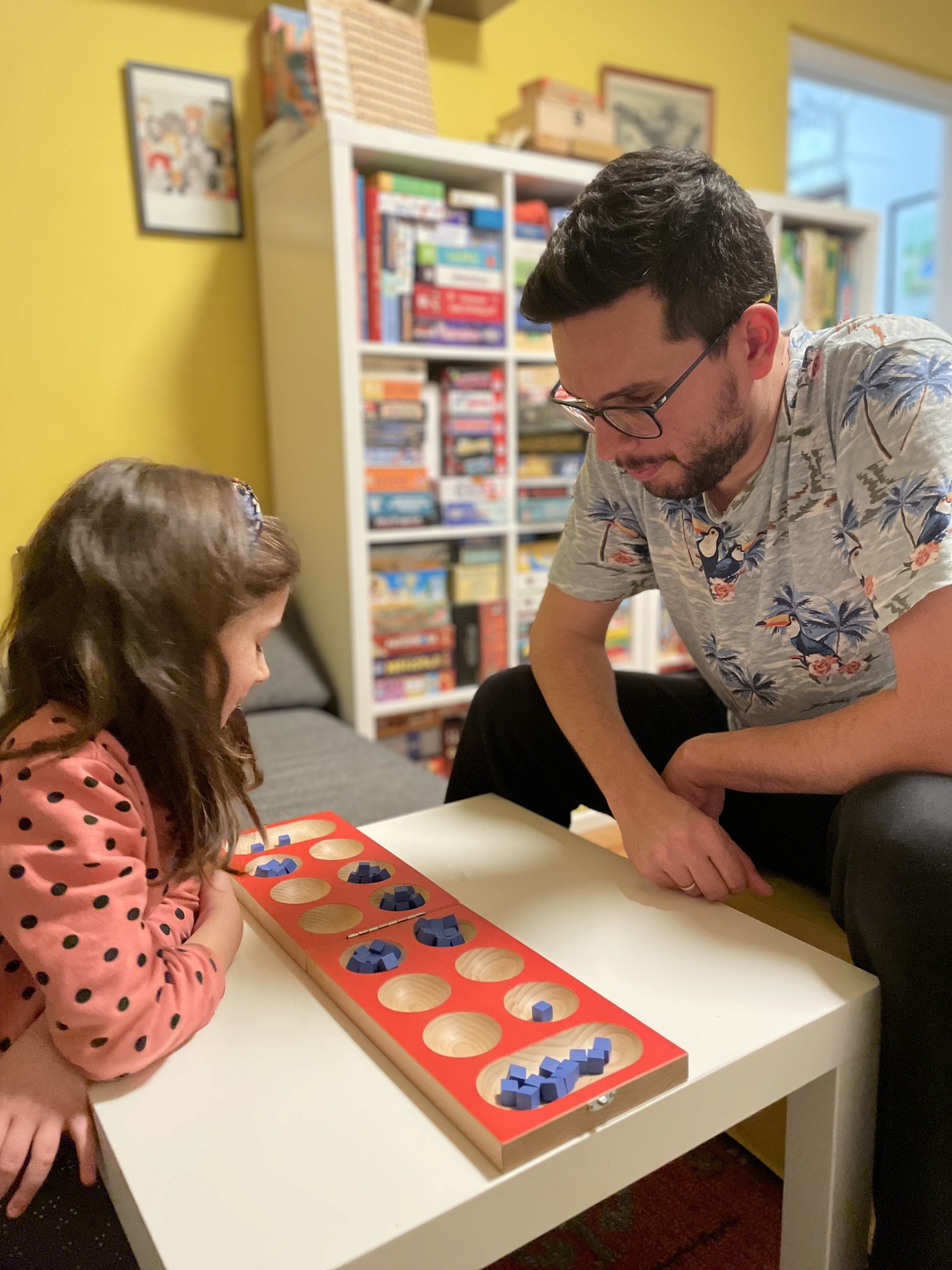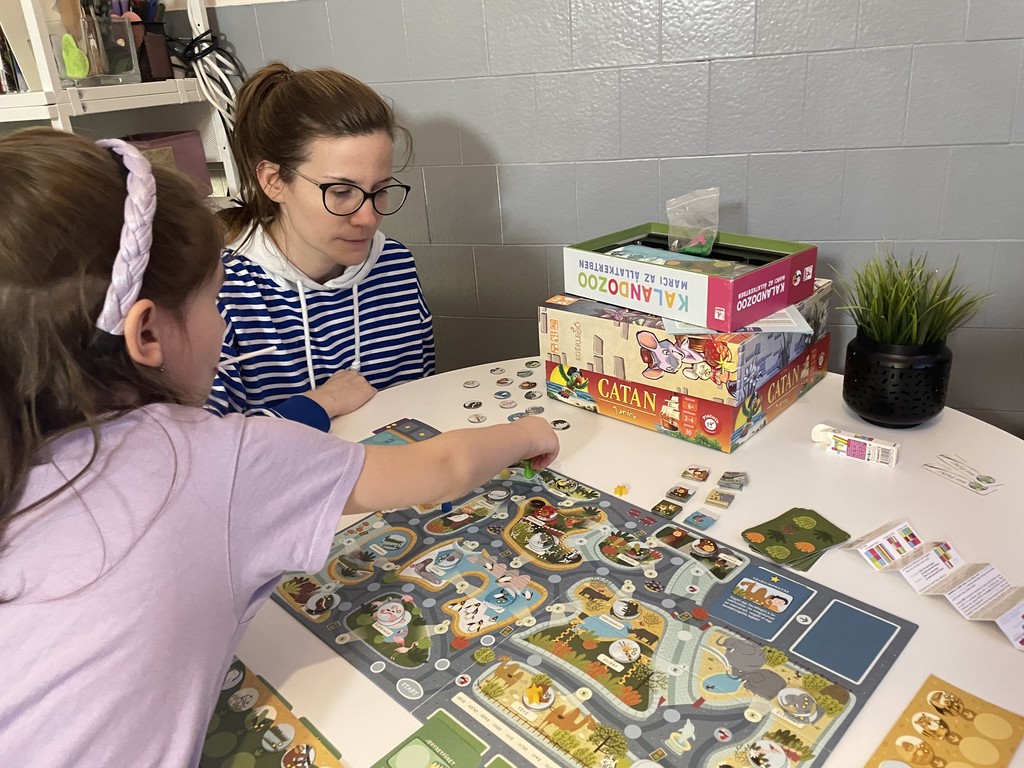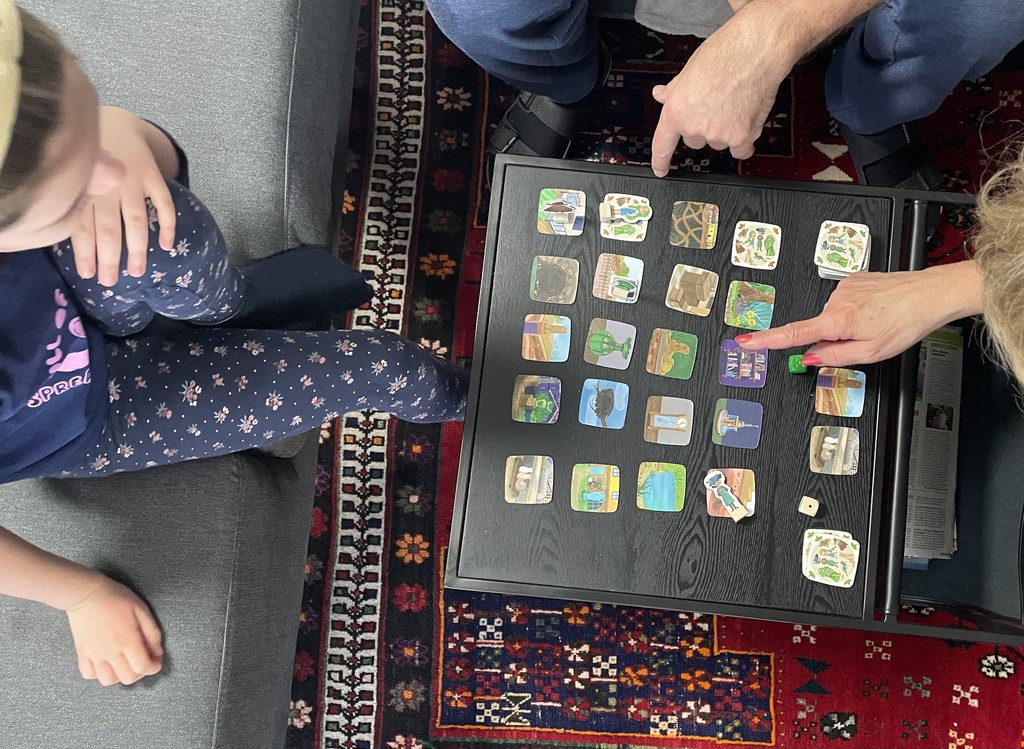Parent Coaching Through Play
How Board Games Strengthen Family Bonds and Skills
Parenting, of course, comes with countless challenges. While teachers are trained, we simply become parents—we adapt, we learn as we go. At PlayWise, we focus specifically on play, especially board games, so this is where we try to offer support through the following articles. Because playing board games isn't always self-evident—it can be challenging, and we can face plenty of obstacles here as well.
The Good Gaming Experience

Let's start with this: this is the goal, this is what we want to create.
Playing board games at home usually happens in small groups of 2-3-4 people, in a safe environment, among people who know and love each other well. The context is ideal, which is why we might assume that playing together should be easy.
So why isn't it that simple?
I believe that any activity that is not an organic part of everyday life can present challenges. That's why the first and most important piece of advice is to make board gaming a natural, everyday thing. At first, this requires a lot of intentionality, but over time, you can reach that ideal state that you were looking for from the beginning.
The first step on this journey is ensuring that everyone's motivation is present in the situation. You need to find the right time, the right place, and the right game. And "right" doesn't just mean what works for the child—it also has to work for the parents.
A parent's motivation is just as important as the child's. We often feel like our role is to sacrifice ourselves, but that's not always true. Parenting involves a lot of sacrifices, and that's okay. But playing board games together shouldn't be one of them.
This is quality time spent together, and we are part of that "together."
If we enjoy playing, if we like the game as well, then this shared activity will be much more meaningful and will be far more effective in reaching its goals.
Board Game Education
If you're generally interested in reading about the educational impact of board games, then take a look around our site.
Choosing the Right Game
If board gaming seems like a potential shared hobby for the family, then you'll need some games. If possible, I highly recommend borrowing games first, or trying out board game events and board game cafés.
Until you get a feel for your family's gaming preferences, spending a lot of money on games might be unnecessary.
What makes a good game?
A good game is one that everyone enjoys playing!
It's a game where everyone has an equal chance, and where each player can and wants to perform at their best.
Giving Advantages
Everyone with equal chances? Even the little ones? Yes! Choosing the right game is the first step. For example, if luck plays a major role, then chances will naturally be more balanced. But handicapping can adjust the balance in any game, ensuring that young and old, beginners and experienced players alike can compete on equal footing.
Are All Kids' Games Boring?
Let's forget the cliché that kids' games are boring and that we just have to endure them to be good parents. No! We are not good parents if we completely neglect ourselves in the process. There are great children's games out there—let's find them and play those!

Preparation

Well, yes. This might not be the most enjoyable part, but it's really not that bad either. One thing is certain: it's worth it.
As parents, we have a huge responsibility—we are the ones who buy the game, learn the rules, and lead the gameplay. We are the engine that drives it forward.
To do this effectively, we must thoroughly understand the game, learn it, and try it out before playing with the kids.
Later, this process can evolve—we can learn together, or the child can take the lead—but at first, the responsibility is entirely ours, and we shouldn't shy away from it!
Why Do We Want to Play Board Games?

Because board gaming is fun! It's quality leisure time, a great shared experience.
And of course, every parent has that little thought in the back of their mind: it surely doesn't hurt either. It's no coincidence that board game publishers have realized it's beneficial to highlight the developmental skills a game supports.
Because as parents, we look for these things. We want the activities we choose to have a positive impact on our children.
We tend to go overboard in this effort, but with board games, we're lucky: they develop countless skills effortlessly while both kids and parents genuinely enjoy themselves.
That's why board game pedagogy focuses on traditional board games rather than those created solely for educational purposes—because the former are just as valuable and beneficial—and, most importantly, they're actually fun.

I get it—it's a lot to ask from parents. I have two daughters myself, so I know how time just disappears.
But! From a professional standpoint, I still stand by it: to truly understand a game, you often need to read the rules twice.
Your 5- and 7-year-old won't learn the rules for you!